Research Briefings Recordings
The Knowledge Hub connects projects focussing on trauma- and violence-informed health promotion with people who have experienced family violence. Research Briefings share results of evaluations of these projects funded by the Public Health Agency of Canada.Inunnguiniq (childrearing): Developing and piloting an evidence-based intervention to support high-risk families who experience family violence in Nunavut
This Research Briefing was presented and recorded on September 9, 2021
The goal of this project is to adapt, pilot, and evaluate the evidence-based Inunnguiniq Parenting Program with ‘high-risk’ parents/caregivers in Nunavut. 'Inunnguiniq' is an Inuktitut word which means to 'create a capable human being' and is the Inuit philosophy of childrearing and life-long learning
We have 3 goals with this project that were presented in this research briefing: 1) To address key determinants of family violence in Nunavut including trauma and disrupted attachments, through an evidence-based, trauma-informed intervention; 2) to build capacity in Nunavut communities to deliver parenting support programs to Nunavut parents; and 3) to revitalize the role of Inunnguiniq (Inuit child-rearing and family philosophy) in the lives of Nunavummiut today, to foster supportive, loving homes for children.
Participants:
- Developed an understanding of the concept of 'Inunnguiniq'
- Developed their understanding of the Nunavut context for the 'Inunnguiniq' Program
- Learned about Inuit pathways to wellbeing and relevance to family violence in Nunavut
Bio:
 Nancy Mike is originally from Panniqtuuq, Nunavut. She currently calls Apex-Iqaluit her home and lives with her three children. Nancy went to Nunavut Arctic College/Dalhousie University and completed her Bachelor’s of Science in Arctic Nursing degree. Her passion has always been to be able to work with other Inuit for the betterment of our well-being holistically, while utilizing our strong Inuit culture and language.
Nancy Mike is originally from Panniqtuuq, Nunavut. She currently calls Apex-Iqaluit her home and lives with her three children. Nancy went to Nunavut Arctic College/Dalhousie University and completed her Bachelor’s of Science in Arctic Nursing degree. Her passion has always been to be able to work with other Inuit for the betterment of our well-being holistically, while utilizing our strong Inuit culture and language.
Building Internal Resilience Through Horses: A Trauma-Informed Equine-Assisted Learning Program for Young Women
This Research Briefing was presented and recorded on August 12, 2021
Presenters: Jennifer Garland, Owner/Program Director, The Mane Intent Inc.; and Dr. Kateryna Keefer, Assistant Professor, Department of Psychology, Trent University.
Building Internal Resilience Through Horses is an innovative trauma-informed community-based program, offered to young women (aged 13-18 years) from Peterborough, ON and surrounding areas who have experienced violence in their home or in dating relationships. The program includes 8 weeks of experiential equine-assisted learning, supplemented with 4 weeks of expressive arts and psychoeducation workshops, designed to enhance coping skills and resilience capacities that would help reduce risk of harm in the future. Program evaluation results support the program’s feasibility and promising outcomes for improving resiliency-related skills in young women who are survivors of interpersonal trauma.
Participants learned about:
- The trauma-informed and resilience-focused approach used in the Building Internal Resilience Through Horses program.
- The findings of the mixed-methods intervention research, highlighting the feasibility of the program and changes in resiliency outcomes.
Bios:
 Jennifer Garland is the Owner/Program Director for The Mane Intent Inc. She is the Project Manager, Equine-Assisted Learning Supervisor and Facilitator for the Building Internal Resilience Through Horses project. She has developed the equine experiential learning component of the program.
Jennifer Garland is the Owner/Program Director for The Mane Intent Inc. She is the Project Manager, Equine-Assisted Learning Supervisor and Facilitator for the Building Internal Resilience Through Horses project. She has developed the equine experiential learning component of the program.
 Dr. Kateryna Keefer is an Assistant Professor-Teaching Intensive in the Department of Psychology at Trent University. Her research focuses on the development and applications of socioemotional competencies in the promotion of wellness and resilience across the lifespan. Dr. Keefer is the Lead Researcher on the Building Internal Resilience Through Horses project.
Dr. Kateryna Keefer is an Assistant Professor-Teaching Intensive in the Department of Psychology at Trent University. Her research focuses on the development and applications of socioemotional competencies in the promotion of wellness and resilience across the lifespan. Dr. Keefer is the Lead Researcher on the Building Internal Resilience Through Horses project.
Presentation Slides in English
Recording
STEP Program: Intervening During Pregnancy with Women who Experienced Childhood Trauma to Support Wellbeing and Mitigate the Intergenerational Repercussions of Trauma
This Research Briefing was presented and recorded on July 15, 2021
Please note: This presentation was presented in English followed by French.
Childhood trauma is frequent in pregnant women from the community and may complexify the experience of pregnancy and motherhood. In addition, children born to a mother exposed to childhood trauma would be three times more likely than offspring of non-exposed mothers to be maltreated themselves, and would be more at-risk of presenting early developmental problems. However, there is few empirically-supported prenatal intervention designed for pregnant women who experienced childhood maltreatment. STEP (Supporting the Transition to and Engagement in Parenthood) is a prenatal group program specifically designed for pregnant women who experienced childhood maltreatment or other types of complex trauma. STEP aims to support mentalization about self and parenthood, and mentalization of trauma order to (a) sustain maternal wellbeing during pregnancy and the years following delivery, (b) support maternal bonding and healthy development in offspring, and (c) contribute to interrupt intergenerational cycles of childhood maltreatment. The presentation provided an overview of the program STEP and presented data regarding the acceptability and effectiveness of this new novel prenatal intervention.
Partcipants learned about:
- The effect of trauma on pregnant women and their offspring.
- The STEP program, its acceptability and effectiveness.
Bio

Recording:
Sole Expression: Trauma-Informed Dance Intervention
This Research Briefing was presented and recorded on June 17, 2021
Presented by: Lindsay Jolie, Director of Operations, Boost Child & Youth Advocacy Centre; and Shannon Brown, Research Coordinator, Ryerson University
Sole Expression is a trauma-informed dance intervention that utilizes Hip-Hop as a way to address trauma in youth who have experienced abuse and/or have been exposed to violence.
Participants learned about:
- The Sole Expression program and preliminary research findings from the qualitative research that was conducted throughout the 5 years of the study.
- Policy and practice implications as a result of this project.
Lindsay Jolie
 Lindsay Jolie is the Director of Operations at Boost Child & Youth Advocacy Centre (Boost CYAC), a multi-service agency that works to prevent child abuse through awareness and education and responds to child abuse cases with a holistic, child-centered approach. Joining the organization in 2001, Lindsay spent ten years providing trauma related and court preparation services to children and youth who had experience abuse and/or had been exposed to violence. Lindsay has also supported Boost CYAC through the execution of special events and fundraising efforts and through her role as Director of Communications & Community Relations which she held for eight years. Additionally, Lindsay was a part-time instructor for two academic years in the Child & Youth Worker Program at George Brown College, teaching Child Abuse & Neglect, Professional Writing, and Field Placement Preparation courses.
Lindsay Jolie is the Director of Operations at Boost Child & Youth Advocacy Centre (Boost CYAC), a multi-service agency that works to prevent child abuse through awareness and education and responds to child abuse cases with a holistic, child-centered approach. Joining the organization in 2001, Lindsay spent ten years providing trauma related and court preparation services to children and youth who had experience abuse and/or had been exposed to violence. Lindsay has also supported Boost CYAC through the execution of special events and fundraising efforts and through her role as Director of Communications & Community Relations which she held for eight years. Additionally, Lindsay was a part-time instructor for two academic years in the Child & Youth Worker Program at George Brown College, teaching Child Abuse & Neglect, Professional Writing, and Field Placement Preparation courses.
Shannon Brown, MA CYC, B.A., CYW
 Shannon Brown is the Research Coordinator of the Sole Expression project. She has spent many years as a front-line practitioner working with young people who have experienced trauma and abuse. Shannon has coordinated several research projects including "Gap Analysis for Victims and Survivors of Internet Child Sexual Exploitation" and is currently coordinating a research project titled "Understanding the Impact of the Internet Child Exploitation Counselling Progam in Ontario". Shannon will begin her Ph.D. studies at the University of Toronto's Factor-Iwentash School of Social Work in September.
Shannon Brown is the Research Coordinator of the Sole Expression project. She has spent many years as a front-line practitioner working with young people who have experienced trauma and abuse. Shannon has coordinated several research projects including "Gap Analysis for Victims and Survivors of Internet Child Sexual Exploitation" and is currently coordinating a research project titled "Understanding the Impact of the Internet Child Exploitation Counselling Progam in Ontario". Shannon will begin her Ph.D. studies at the University of Toronto's Factor-Iwentash School of Social Work in September.
Recording:
Making Mindfulness Matter (M3): Creating a Culture of Resiliency for Vulnerable Family
This Research Briefing was presented and recorded on March 11, 2021
Presenter: Karen Bax, Ph.D., C. Psych. Director, Mary J. Wright Research and Education Centre, Assistant Professor, Faculty of Education, Western University
Making Mindfulness Matter (M3) is a concurrent parent and child program that supports parents by offering a new approach to parenting in stressful situations and helps children build skills to manage their emotions and behaviours and build caring relationships with those around them. Through learning how our brains work under stress, M3 teaches how we can pay better attention to your feelings and thoughts and behaviours through mindful awareness which helps us make better decision about how we respond. M3 also teaches positive ways to respond, like perspective taking, thankfulness, kindness and positive thinking. Results from a mixed method study indicate robust feasibility for the program with vulnerable families and efficacy testing has shown strong pre-post outcomes related to parenting stress, child behaviour, executive functioning and adaptive skills.
Partcipants learned about:
- The evidence-base behind the creation of the Making Mindfulness Matter.
- The results of the mixed method evaluation of the feasibility of the program.

Recording:
Nato’ we ho win: An Artistic and Cultural Program for Indigenous Women Who Have Experienced Intimate Partner Violence
This Research Briefing was presented and recorded on March 5, 2021
Presenters: Lori Deets—Nato’ we ho win Domestic Violence Advocate & Crystal Giesbrecht— Director of Research and Communications, Provincial Association of Transition Houses and Services of Saskatchewan (PATHS)
Nato’ we ho win is an innovative program developed in Saskatchewan that addresses the mental and physical health needs of Indigenous women who have experienced intimate partner violence (IPV) by increasing cultural connections and teaching practices that foster resilience. Participants engaged in trauma-and-violence-informed, artistic, and cultural programming designed to increase stress management skills, social support networks, coping skills, and knowledge of traditional Indigenous culture, as well as address issues related to the experience of IPV.
Particpants learned about:
- The elements of Nato’ we ho win and identify how Nato’ we ho win can be adapted for implementation in other communities and contexts.
- The benefits experienced by Indigenous women who participated in Nato’ we ho win, including findings of the mixed-methods intervention research.
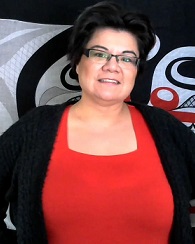
Lori Deets was the Domestic Violence Advocate for the Moose Jaw Nato’ we ho win Group. Her role within the group and the community changed throughout the four years of the group. Lori came to the group as a Front-Line Worker at the Moose Jaw Transition House and as the Chair of the Wakamow Aboriginal Community Association. Lori is involved with non-profit/advocacy work locally, provincially and federally. Currently Lori is a student at First Nations University in the Indigenous Communications Arts program and is working towards a degree in Human Justice.
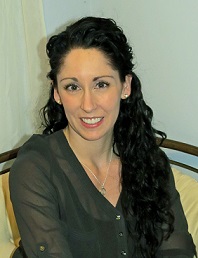 Crystal Giesbrecht is the Director of Research and Communications at PATHS. Crystal’s work at PATHS includes educating member agency staff, professionals, and the public on best practices for supporting victims/survivors of intimate partner violence and conducting research relating to intimate partner violence in Saskatchewan. Crystal holds a Master of Social Work and is currently a Ph.D. student in the Department of Justice Studies at the University of Regina. Crystal’s role in Nato’ we ho win included project management, research coordination, and data analysis.
Crystal Giesbrecht is the Director of Research and Communications at PATHS. Crystal’s work at PATHS includes educating member agency staff, professionals, and the public on best practices for supporting victims/survivors of intimate partner violence and conducting research relating to intimate partner violence in Saskatchewan. Crystal holds a Master of Social Work and is currently a Ph.D. student in the Department of Justice Studies at the University of Regina. Crystal’s role in Nato’ we ho win included project management, research coordination, and data analysis.
Recording:
Exploring lessons learned from arts-based HIV and STI prevention programs with Northern and Indigenous adolescents in the Northwest Territories, Canada
This Research Briefing was presented and recorded on February 18, 2021
Dr. Carmen Logie explored findings on the effectiveness of FOXY and SMASH’s school based interventions, as well as what we learned about social and contextual influences on adolescent mental and sexual health in the Northwest Territories.
Participants learned about:
- The sexual health benefits experienced by participants of an arts-based HIV and STI prevention with Northern and Indigenous adolescents in the NWT.
- The contextual factors associated with mental health outcomes, and sexual health outcomes, and identify areas for policy, practice and research.
Speaker bio
Dr. Carmen Logie, Canada Research Chair in Global Health Equity and Social Justice with Marginalized Populations, is an Associate Professor at the Factor-Inwentash Faculty of Social Work, University of Toronto and Adjunct Professor at the United Nations University Institute for Water, Environment, & Health. Her research program advances understanding of, and develops interventions to address, social ecological factors with a focus on intersecting stigma associated with HIV and other health disparities. She is particularly interested in addressing intersectional stigma and its sexual, reproductive and mental health impacts, focused on HIV. Her current research focuses on HIV/STI prevention, testing and care cascades in Uganda, Jamaica, Brazil, and Canada with people with HIV, refugee and displaced youth, LGBTQ2S+ communities, and Northern and Indigenous youth.
Recording:
The Impact of The Peer Education and Connection through Empowerment (P.E.A.C.E) Project
This Research Briefing was presented and recorded on January 28, 2021
The Peer Education and Connection through Empowerment (P.E.A.C.E) project developed a trauma-informed curriculum and facilitated group activities to enhance resiliency and promote overall health of female-identifying youth who have experienced any form of gender-based violence. This presentation will provide an overview of the impact of the project.
Participants learned about:
- The lessons learned from the Peer Education and Connection through Empowerment (PEACE) project
- The study design and its strengths and limitations.
Bios
 Kasia Ignatowska is a Health Promotion Coordinator for the P.E.A.C.E. Project. Her collaboration with peer mentors, participants and community partners was at the heart of creation and implementation of each community-based group. Centring autonomy, lived experiences, stages of recovery and traditional education enabled harmonizing group dynamics while practicing a culture of growing from. Prior to her role at Covenant House Toronto, Kasia's Youth Work experience includes, Residential, Outreach, Child & Youth Psychiatry, Informal Diversion, VAW shelter. Kasia holds a Bachelor of Fine Arts from Concordia University, Child and Youth Worker Diploma from Humber College and a Bachelor of Social Work from York University.
Kasia Ignatowska is a Health Promotion Coordinator for the P.E.A.C.E. Project. Her collaboration with peer mentors, participants and community partners was at the heart of creation and implementation of each community-based group. Centring autonomy, lived experiences, stages of recovery and traditional education enabled harmonizing group dynamics while practicing a culture of growing from. Prior to her role at Covenant House Toronto, Kasia's Youth Work experience includes, Residential, Outreach, Child & Youth Psychiatry, Informal Diversion, VAW shelter. Kasia holds a Bachelor of Fine Arts from Concordia University, Child and Youth Worker Diploma from Humber College and a Bachelor of Social Work from York University.
Dr. Ali Bani-Fatemi, MSc, PhD
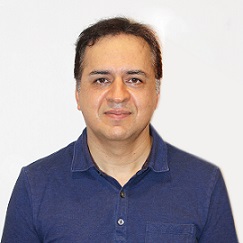 Dr. Bani-Fatemi is a postdoctoral fellow at CAMH. He is experienced in molecular psychiatry and spent a significant amount of time on suicide studies in schizophrenia. During his graduate and post-graduate career, he has developed expertise in genetics (GWAS, Next Generation Sequencing, microarray analyses, candidate gene studies, and CNV analysis) and epigenetics as well as in statistics and computer science.
Dr. Bani-Fatemi is a postdoctoral fellow at CAMH. He is experienced in molecular psychiatry and spent a significant amount of time on suicide studies in schizophrenia. During his graduate and post-graduate career, he has developed expertise in genetics (GWAS, Next Generation Sequencing, microarray analyses, candidate gene studies, and CNV analysis) and epigenetics as well as in statistics and computer science.
Recording:
Building Connections: Supporting Community-Based Programs to Address Interpersonal Violence and Child Maltreatment Using Relational, Trauma-Informed Frameworks
This Research Briefing was presented and recorded on January 25, 2021
Description
The aim of Building Connections was to increase capacity of services providers in CAPC/CPNP/ AHSUNC community-based projects across Canada to identify and respond to interpersonal violence by enhancing trauma-informed and relational approaches. The overarching goals of Building Connections were: 1) to raise awareness among all 800 + CAPC/CPNP/AHSUNC projects of effective ways to support mothers and children facing interpersonal violence; and 2) to evaluate the dissemination of an interpersonal violence intervention for mothers to a subset of 34 CAPC/CPNP/AHSUNC projects in communities across Canada. Quantitative and qualitative outcomes were measured for CAPC/CPNP/AHSUNC community project staff, certified Connections facilitators, and for mothers who participated in the intervention.
Participants learned about:
- The significant research outcomes for community project staff, certified facilitators, and mothers related to implementation of the Connections group into community-based projects across Canada.
- The importance of relational, trauma-informed, integrated and collaborative approaches when working with mothers and young children at risk due to interpersonal violence.
Margaret Leslie, DipC.S., C.Psych. Assoc.
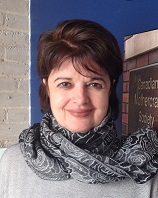 Margaret Leslie is Director of Child and Family Services at the Canadian Mothercraft Society. For the past 35 years, her clinical experience has been in the areas of prevention and early intervention services for families and young children living in conditions of risk. She was instrumental in the development and implementation of Mothercraft’s Breaking the Cycle program, a CAPC/CPNP project recognized by the United Nations Office on Drugs and Crime as a best practice program serving pregnant and parenting women with substance use problems, and their young children, and which partnered in the delivery of Building Connections She led the national replication of Connections, Breaking the Cycle’s trauma-informed intervention for mothers and children experiencing interpersonal violence.
Margaret Leslie is Director of Child and Family Services at the Canadian Mothercraft Society. For the past 35 years, her clinical experience has been in the areas of prevention and early intervention services for families and young children living in conditions of risk. She was instrumental in the development and implementation of Mothercraft’s Breaking the Cycle program, a CAPC/CPNP project recognized by the United Nations Office on Drugs and Crime as a best practice program serving pregnant and parenting women with substance use problems, and their young children, and which partnered in the delivery of Building Connections She led the national replication of Connections, Breaking the Cycle’s trauma-informed intervention for mothers and children experiencing interpersonal violence.
Ms. Leslie is the community co-chair of Infant Mental Health Promotion (IMHP) and a member of the Province of Ontario’s FASD Expert Advisory Group, Ms. Leslie is the recipient of the National Harm Reduction Award for Excellence in Mental Health and Substance Use Programming, the 2013 Elizabeth Manson Award for Community Service in Children’s Mental Health, and the 2014 City of Toronto Public Health Champion Award.
Ms. Leslie is a member of the College of Psychologists of Ontario.
Mary Motz, Ph.D., C. Psych. (she/her)
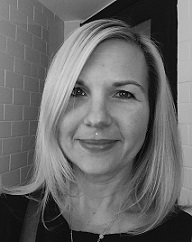 Dr. Mary Motz is a Clinical Psychologist at Mothercraft’s Breaking the Cycle (BTC) program in Toronto and an Adjunct Faculty in the Department of Psychology at York University. Since obtaining her degree in clinical-developmental psychology at York University, she has been working as a clinical psychologist with infants, young children and their mothers who are at risk for maladaptive outcomes due to issues related to maternal substance use and mental health difficulties, trauma, interpersonal violence, systemic discrimination, and poverty.
Dr. Mary Motz is a Clinical Psychologist at Mothercraft’s Breaking the Cycle (BTC) program in Toronto and an Adjunct Faculty in the Department of Psychology at York University. Since obtaining her degree in clinical-developmental psychology at York University, she has been working as a clinical psychologist with infants, young children and their mothers who are at risk for maladaptive outcomes due to issues related to maternal substance use and mental health difficulties, trauma, interpersonal violence, systemic discrimination, and poverty.
Dr. Motz has led the program evaluation and research at BTC and has supervised research and clinical practicum students. Dr. Motz has co-authored numerous academic publications and technical reports, as well as provided training nationally and internationally related to promoting healthy development, Fetal Alcohol Spectrum Disorder assessment, and trauma-informed interventions for families with infants and young children who have complex needs. Her primary research interests are related to the mechanisms by which mothers living in conditions of risk are able to make changes to improve their own lives and the lives of their infants and young children.
Recording:
Lessons learned from Evaluating the Bounce Back League (BBL): Implications for Policy and Practice Moving Forward
This Research Briefing was presented and recorded on November 26, 2020
This presentation provided a brief overview of the evaluation approach used to examine the implementation and outcomes of the BBL. Lessons learned from the project were shared to help inform practice and policy related to trauma-informed programming for youth moving forward.
Participants learned about:
- The value gained from the adoption of a Utilization-Focused Approach to Evaluation.
- The importance of a train the trainer model for fostering program sustainability within community organizations.
Bio
 Dr. Tanya Forneris is an Associate Professor of Teaching and the Associate Director of the School of Health and Exercise Sciences at the University of British Columbia Okanagan. She obtained her undergraduate degree in Psychology as well as her Master’s degree in Sport Psychology at the University of New Brunswick in Canada and her PhD at Virginia Commonwealth University in the United States. Her area of expertise is the development, implementation and evaluation of community and sport-based life skills programming to enhance the development of youth. Most recently, Dr. Forneris has been working on an initiative to improve the well-being of university students to improve their levels of academic resilience.
Dr. Tanya Forneris is an Associate Professor of Teaching and the Associate Director of the School of Health and Exercise Sciences at the University of British Columbia Okanagan. She obtained her undergraduate degree in Psychology as well as her Master’s degree in Sport Psychology at the University of New Brunswick in Canada and her PhD at Virginia Commonwealth University in the United States. Her area of expertise is the development, implementation and evaluation of community and sport-based life skills programming to enhance the development of youth. Most recently, Dr. Forneris has been working on an initiative to improve the well-being of university students to improve their levels of academic resilience.
Presentation Slides in English
Recording:
Using Yoga in Your Work with Women, Children, Youth and Yourself!
Using Yoga in Your Work with Women, Children, Youth and Yourself!
This Research Briefing was presented and recorded on November 3rd, 2020
During this presentation, high level findings from the Reaching Out with Yoga project were shared. Informed by those findings, the presenter shared ideas of how you might incorporate some yoga and mindfulness practices into your own work, whether it be for your own self-care, or your work with clients as well as a list of resources for more learning.
Partcipants learned about:
- Summary of findings from the Reaching Out with Yoga project including an understanding of the intervention (trauma-informed yoga)
- Yoga, breathing and grounding practices you can incorporate into your life or work or both
Bio
 Renee Turner is the Research Manager for the Reaching Out with Yoga project. Her background is in community-based research and she is passionate about bringing research and social services together to share and learn from each other. She is also a yoga teacher and has learned so much through this project about how the yoga community can and must become more trauma-informed, inclusive and accessible.
Renee Turner is the Research Manager for the Reaching Out with Yoga project. Her background is in community-based research and she is passionate about bringing research and social services together to share and learn from each other. She is also a yoga teacher and has learned so much through this project about how the yoga community can and must become more trauma-informed, inclusive and accessible.
Recording:
Safe and Understood: Intervening with families to promote healthy child outcomes and prevent abuse recurrence for young child victims of domestic violence exposure
This Research Briefing was presented and recorded on October 26, 2020
Description
The main objective of the Safe and Understood project was to improve outcomes for young children (ages 0-4) at-risk because of domestic violence exposure, by enhancing the reach of two existing programs—Mothers in Mind and Caring Dads. The Mothers in Mind program focused on the parenting needs of mothers who have experienced family violence, childhood abuse, neglect, and sexual assault, while Caring Dads focused on the parenting needs of fathers who have abused, neglected, or exposed their children to domestic. Both programs helped parents build their stress management skills, enhance their self-esteem, prevent future maltreatment, and support the social, emotional and developmental health of their children. This presentation will focus on how these programs were adapted, implemented, and evaluated at select sites in Alberta, Ontario, and Quebec.
Learning Objectives
At the end of this presentation, partcipants:
- Had a better understanding of both programs and their applicability in different contexts (i.e., French speaking community, rural communities, and Indigenous child welfare community).
- Learned how to use collaborative models to develop, enhance, and expand integration across community services for families experiencing domestic violence.
- Learned about the program outcomes (i.e., service provider-, mother-, father-, child- focused).
Bios
Dr. Angelique Jenney
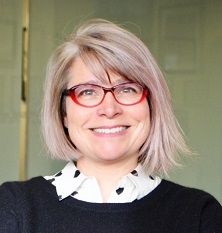 Dr. Angelique Jenney, PhD, RSW is the Associate Director of Safe and Understood, at the Child Development Institute. She is also Assistant Professor and the Wood’s Homes Research Chair in Children’s Mental Health in the Faculty of Social Work at the University of Calgary. Wood’s Homes is a multi-service, non-profit children’s mental health center based in Calgary, Alberta. Dr. Jenney has over 20 years of experience in intervention and prevention services within the child protection, children’s mental health and violence against women sectors. Dr. Jenney’s research and program development has been devoted to understanding and responding to the impact of violence in families. Her research and practice interests include: family-based interventions for childhood trauma; child protection responses to family violence cases; the experience of mothering in the context of violence/trauma; and reflective approaches to teaching and training social work students.
Dr. Angelique Jenney, PhD, RSW is the Associate Director of Safe and Understood, at the Child Development Institute. She is also Assistant Professor and the Wood’s Homes Research Chair in Children’s Mental Health in the Faculty of Social Work at the University of Calgary. Wood’s Homes is a multi-service, non-profit children’s mental health center based in Calgary, Alberta. Dr. Jenney has over 20 years of experience in intervention and prevention services within the child protection, children’s mental health and violence against women sectors. Dr. Jenney’s research and program development has been devoted to understanding and responding to the impact of violence in families. Her research and practice interests include: family-based interventions for childhood trauma; child protection responses to family violence cases; the experience of mothering in the context of violence/trauma; and reflective approaches to teaching and training social work students.
Contact: angelique.jenney@ucalgary.ca
Dr. Katreena Scott
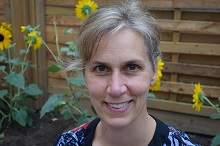 Dr. Katreena Scott, PhD, C Psych is the Co-Principal Investigator for Safe and Understood, at the University of Toronto. She is also a Psychologist, Professor and incoming Director of the Centre for Research and Education on Violence Against Women and Children at Western University. She held the Canada Research Chair in Family Violence Prevention and Intervention between 2008 and 2018. Dr. Scott leads an applied research program aimed at ending violence in family relationships, with specific expertise on addressing violence perpetration in men. The Caring Dads program that she developed is offered in in many sites across North American and Europe. She is a contributor to international networks including the DV@Work Network and the Safer Families Centre of Excellence.
Dr. Katreena Scott, PhD, C Psych is the Co-Principal Investigator for Safe and Understood, at the University of Toronto. She is also a Psychologist, Professor and incoming Director of the Centre for Research and Education on Violence Against Women and Children at Western University. She held the Canada Research Chair in Family Violence Prevention and Intervention between 2008 and 2018. Dr. Scott leads an applied research program aimed at ending violence in family relationships, with specific expertise on addressing violence perpetration in men. The Caring Dads program that she developed is offered in in many sites across North American and Europe. She is a contributor to international networks including the DV@Work Network and the Safer Families Centre of Excellence.
Contact: kscot47@uwo.ca
Recording:
The Flourish Project: Collaborative Approaches for Supporting Survivors
This Research Briefing was presented and recorded on Tuesday, September 22, 2020
Description
This presentation provided an overview of the development, delivery, and outcomes of the Flourish intervention for survivors of FGM/C in Toronto, Ontario. The Flourish project aimed to address the support needs of FGM/C survivors within the context of socio-economic and intersectional realities using a community-based participatory lens.
At the end of this presentation, partcipants:
- Developed a better understanding of the knowledge-to-action cycle and how implementation science is used at the community level;
- Were able to assess barriers identified by participants in the Flourish project and evaluate mitigation strategies for similar programs and initiatives;
- Were able to recognise barriers to care related to the intersections of race, migration and gender.
Bios:
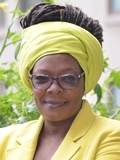 Wangari Tharao is the Director of Research and Programs at Women’s Health in Women’s Hands Community Health Centre (WHIWH CHC). WHIWH CHC provides primary healthcare to racialized women from the African, Black, Caribbean, Latin American and South Asian communities in Toronto and surrounding municipalities.
Wangari Tharao is the Director of Research and Programs at Women’s Health in Women’s Hands Community Health Centre (WHIWH CHC). WHIWH CHC provides primary healthcare to racialized women from the African, Black, Caribbean, Latin American and South Asian communities in Toronto and surrounding municipalities.
Wangari is also a recognized community-based researcher, focusing on sexual and reproductive health issues relevant to racialized women living in Canada. She utilizes knowledge generated through research to develop evidence-based interventions and works collaboratively with service delivery organizations to support their integration into services targeted to diverse women and their communities.
She is currently the North American Co-Chair of the UNAIDS NGO Delegation Program Coordinating Board (PCB) and is a co-founder of several local, provincial, national and international networks including, the African and Caribbean Council on HIV/AIDS in Ontario (ACCHO), the Canadian HIV/AIDS Black, African and Caribbean Network (CHABAC) and the African and Black Diaspora Global Network on HIV and AIDS (ABDGN).
 Muna Aden is a research and program manager and consultant based in Toronto. She is a member of a provincial research team investigating the prevalence of HIV and associated factors among key populations in addition to the prevention transmission and the engagement of newly diagnosed people into care. As a research consultant her work focuses on implementation sciences and the evaluation of clinical and community based interventions. She is a community advisory board member of the “Because She Cares” project and is also a mentor to research trainees. Muna regularly engages in capacity building/capacity sharing initiatives and strives for the greater representation and meaningful involvement of community members in research.
Muna Aden is a research and program manager and consultant based in Toronto. She is a member of a provincial research team investigating the prevalence of HIV and associated factors among key populations in addition to the prevention transmission and the engagement of newly diagnosed people into care. As a research consultant her work focuses on implementation sciences and the evaluation of clinical and community based interventions. She is a community advisory board member of the “Because She Cares” project and is also a mentor to research trainees. Muna regularly engages in capacity building/capacity sharing initiatives and strives for the greater representation and meaningful involvement of community members in research.
Presentation Recording:
TransFormed: Addressing Intimate Partner Violence from Two-Spirit, Nonbinary, and Trans Perspectives
This Research Briefing was presented and recorded on September 24, 2020
Description: The TransFormed Project is a bilingual, community-based research project led by METRAC: Action on Violence in partnership with the Centre de Francophone with the goal of addressing barriers within and increasing access to health care and social services for Two-Spirit, nonbinary and trans survivors of intimate partner violence (IPV). This presentation introduced the project’s methodology, key research findings, and implications for the provision of support services to Two-Spirit, nonbinary and trans survivors of IPV.
At the end of this presentation, participants:
- Developed an understanding of the community-based, peer-led research process developed and implemented throughout the TransFormed project;
- Were introduced to key research findings on Two-Spirit, nonbinary, and trans individuals’ experiences of intimate partner violence and accessing support services
- Were able to identify key barriers Two-Spirit, nonbinary, and trans survivors of intimate partner violence experience when attempting to access support services.
Presenters:
Maiesha Zarin
Maeisha the current Project Coordinator for the TransFormed Project at METRAC. Initially starting as a PLG (Peer Leadership Group) member, Maiesha joined on as a Project Coordinator in 2020. Maiesha is passionate about the arts and holds a Bachelor of Fine Arts (Hons) in Film Production from York University. When they aren’t writing or working on set, they are honing their skills and love for community organizing through participating or programming community events and initiatives.
Laura Hartley
 Laura Hartley is the Program Director at METRAC: Action on Violence. METRAC: Action on Violence. METRAC works with individuals, communities and institutions to change ideas, actions and policies with the goal of ending gender-based violence. Laura has been working as an educator, advocate, facilitator and leader in gender-based violence organizations for the past 10 years. She is also a Wen-Do Women’s Self-Defence instructor and a founding member of gRRRRL Justice, a grassroots feminist collective that uses the arts to engaging youth in ending gender-based violence.
Laura Hartley is the Program Director at METRAC: Action on Violence. METRAC: Action on Violence. METRAC works with individuals, communities and institutions to change ideas, actions and policies with the goal of ending gender-based violence. Laura has been working as an educator, advocate, facilitator and leader in gender-based violence organizations for the past 10 years. She is also a Wen-Do Women’s Self-Defence instructor and a founding member of gRRRRL Justice, a grassroots feminist collective that uses the arts to engaging youth in ending gender-based violence.
Presentation Recording:
